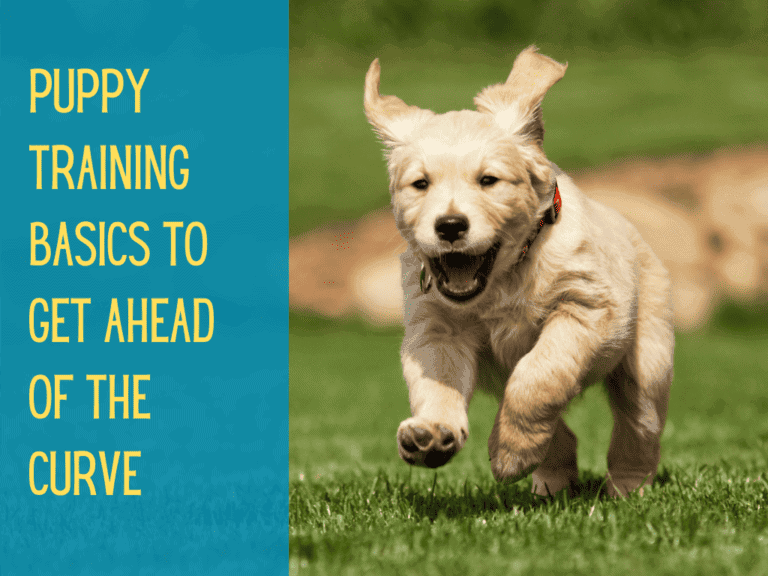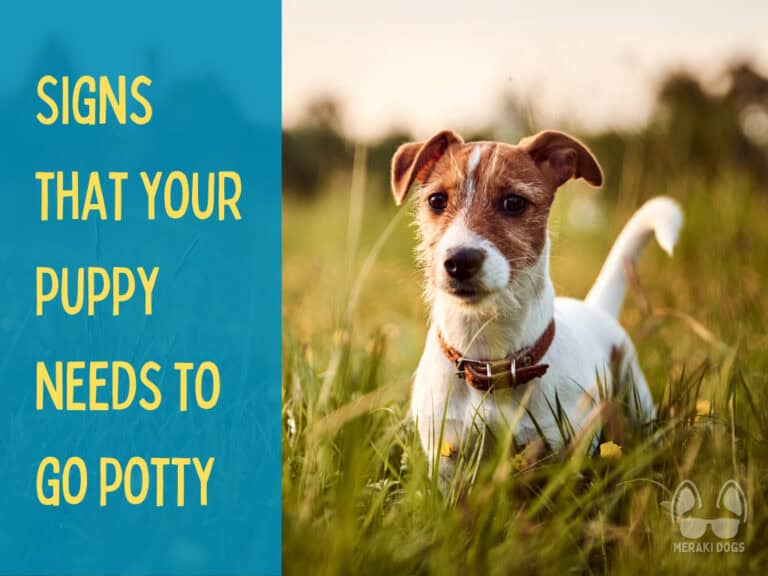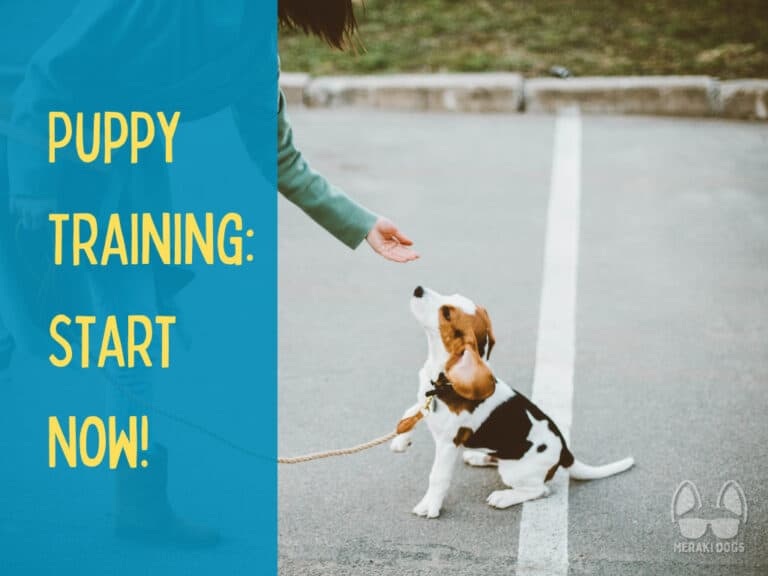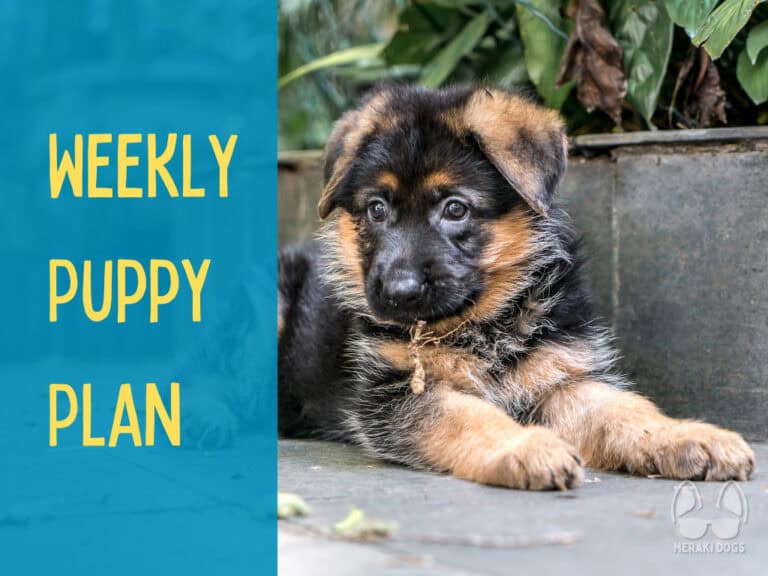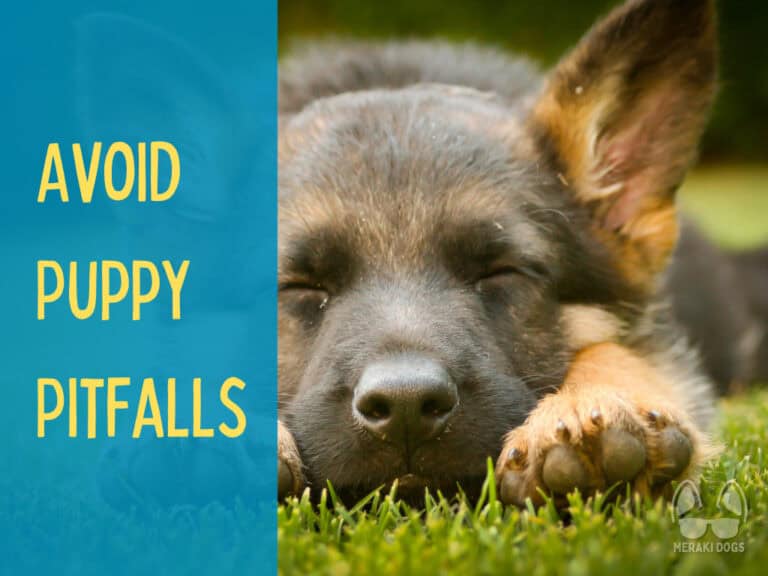Puppy Socialization: Raise a Confident, Well-Behaved Dog

Meraki Dogs may earn a small commission when you buy through links on this site at no cost to you. See our disclaimer here.
Puppy socialization is one of the most misunderstood aspects of raising a well-adjusted dog. Most people assume it means introducing your puppy to as many people, dogs, and experiences as possible—like some kind of chaotic meet-and-greet tour. Wrong.
Proper socialization isn’t about forcing interactions. It’s about ensuring your puppy feels comfortable in different environments and around various stimuli—without feeling the need to react. The goal isn’t to create a dog that runs up to every person and animal they see (because that’s a problem waiting to happen). Instead, we want a dog that remains calm, confident, and focused on their owner.
This guide will break down what puppy socialization actually is, why it matters, and how to do it the right way—without creating bad habits, fear, or reactivity down the line.
Key Takeaways:
- Puppy socialization is about comfort, not interaction. Your puppy doesn’t need to meet every dog or person—just learn to exist around them.
- Early exposure is critical but must be done correctly. Poor experiences can lead to fear, aggression, or overexcitement.
- Controlled socialization is the safest approach. Focus on positive exposure and rewarding engagement with you.
What is Puppy Socialization?
Socialization is often confused with “socializing”—but these are not the same thing.
- Socialization = Teaching your puppy to be comfortable in different environments, around different stimuli.
- Socializing = Direct interaction with people, dogs, and new situations. (Not always necessary and can backfire.)
Understanding this distinction is crucial because too much direct interaction, especially the wrong kind, can lead to unwanted behaviors. Instead of thinking about quantity, focus on quality experiences that build confidence without overwhelming your puppy.
The Critical Socialization Window (3-14 Weeks)
This short 3 to 14-week critical socialization period is when puppies are most open to new experiences before fear responses start kicking in. If done correctly, they’ll grow into adaptable, confident adults. If done poorly—or not at all—fear and behavioral issues can follow.
But here’s the catch: Just because socialization is critical early on doesn’t mean you should rush it. Bad experiences stick just as much as good ones. That’s why gradual, positive exposure is key.

Why Proper Socialization Matters
A well-socialized puppy grows into a dog that:
✔ Remains calm in new environments instead of panicking or acting out.
✔ Doesn’t overreact to people or dogs, whether from fear or overexcitement.
✔ Listens to their owner rather than being distracted by every noise, person, or movement.
A poorly socialized puppy, on the other hand, might:
✘ Become reactive—either lunging at people/dogs or barking to make them go away.
✘ Expect attention from everyone and demand it obnoxiously.
✘ Develop anxiety in new situations because they were never properly exposed.
Since socialization lays the foundation for your dog’s future behavior, it’s important to do it correctly from the start. The goal is to build confidence and neutrality, not create overexcitement or fear.
Want to be sure you cover all bases? Consider forming a puppy socialization checklist to ensure a well-rounded upbringing.
Safe Practices for Puppy Socialization
1. Exposure Over Interaction
The biggest mistake people make is thinking their puppy needs to interact with everything and everyone. They don’t.
Instead, think of socialization like a movie background extra—your puppy should learn to exist around distractions without fixating on them. This prevents the two biggest socialization problems:
- Over-excited dogs that expect attention from every person and dog (and lose their minds when they don’t get it).
- Fearful dogs that feel pressured into interactions and start avoiding people or animals.
How to Do It Right:
✔ Observe first. When introducing your puppy to something new, let them watch from a distance. See how they react before moving closer.
✔ Reward neutrality. If they ignore a new stimulus or stay calm, praise and reward them. We want them to think, “Oh, that’s just normal.”
✔ Use distance. If your puppy is hesitant, start further away and gradually close the gap.
What NOT to Do:
✘ Don’t force interactions. Just because you see another dog or person doesn’t mean your puppy needs to meet them.
✘ Don’t let strangers overwhelm your puppy. Well-meaning people love puppies, but shoving hands in their face can be terrifying.

2. Introducing People (Without Encouraging Bad Habits)
Socializing with people is important, but how you do it matters. Many owners accidentally create a pushy or reactive dog by letting everyone greet their puppy.
How to Do It Right:
✔ Teach engagement with you first. Before introducing people, make sure your puppy can focus on you in new environments.
✔ Control greetings. If you allow a greeting, educate the person on how to interact with your puppy.
✔ Expose them to variety. Let them see different types of people (hats, beards, kids, etc.) without necessarily interacting.
Common Mistakes to Avoid:
✘ Letting people rush up. Your puppy should never feel ambushed. If someone insists on greeting them, tell them to ignore your puppy at first and let the puppy decide if they want to approach.
✘ Allowing jumping. If your puppy jumps on someone, don’t let them continue greeting. Stop the interaction immediately so they learn jumping doesn’t get them attention.
Example: If a stranger asks to pet your puppy, say, “You can, but please let them come to you. No reaching over their head.” This avoids overwhelming them.

3. Socializing With Other Dogs (Safely and Smartly)
Not every dog is a good match for your puppy. In fact, most dogs at dog parks aren’t ideal socialization partners. A single bad experience—like a rough or aggressive dog bullying them—can lead to lifelong fear or reactivity.
How to Do It Right:
✔ Choose well-mannered, vaccinated dogs. Avoid hyper or pushy dogs that could scare your puppy.
✔ Keep play sessions short. 5-10 minutes is enough. Overly long playdates lead to bad habits like rough play and exhaustion.
✔ Watch body language. Loose, bouncy movements = good. Stiff, intense staring = bad.
What NOT to Do:
✘ Don’t let your puppy run up to random dogs. Just because they’re outside doesn’t mean they’re friendly.
✘ Don’t allow bullying. If another dog is overwhelming your puppy, remove them immediately.
Alternative Socialization Ideas:
- Leashed parallel walks with a calm dog instead of direct play.
- Supervised small group puppy classes (not chaotic free-for-alls).
- Controlled one-on-one playdates with trusted dogs.
4. Exposure to Different Environments (Without Stressing Your Puppy)
A confident dog is one that can walk into a new environment and stay calm. This doesn’t happen naturally—it comes from positive, gradual exposure.
How to Do It Right:
✔ Start with quiet locations. A calm park or neighborhood is a great starting point before progressing to busy streets.
✔ Let them experience different surfaces. Grass, gravel, tile, wood floors—each one helps build confidence.
✔ Use treats to build positive associations. If your puppy seems hesitant, reward them for calmly exploring.
What NOT to Do:
✘ Don’t rush into overwhelming places. If your puppy is nervous in a new environment, slow down and let them take it in.
✘ Don’t drag them forward if they freeze. Instead, back up to a more comfortable distance.
Example Exercise: If your puppy is nervous at a busy park, start by sitting on a bench far from the action. Let them observe while rewarding calm behavior before moving closer.

5. Handling & Grooming (So Your Vet Doesn’t Hate You)
Dogs that aren’t socialized to touch and handling end up being difficult (or dangerous) to groom, examine, or medicate. Teaching them early makes life easier for everyone.
How to Do It Right:
✔ Daily handling practice. Touch their paws, ears, and mouth while giving treats.
✔ Make grooming positive. Start with short sessions and reward them as you go.
✔ Introduce vet-like handling. Occasionally lift their tail, gently restrain them, or hold their muzzle (so they don’t freak out at the vet).
What NOT to Do:
✘ Don’t force it if they’re struggling. Go slow—gradual desensitization works better than restraint.
✘ Don’t only do it when necessary. If the first time you trim their nails is when they’re 6 months old, they’ll likely hate it.
Example: If your puppy dislikes nail trims, start by just touching their paws and rewarding them. Work up to holding the nail clippers near their paw before actually clipping.
6. Monitoring Your Puppy’s Reactions & Adjusting Accordingly
Not all puppies socialize at the same pace. Some are naturally bold, while others are cautious. Pay attention to your puppy’s signals and adjust your approach accordingly.
Signs Your Puppy is Comfortable:
✔ Loose, wagging tail
✔ Curiosity without fear
✔ Willingness to explore
Signs Your Puppy is Overwhelmed:
✘ Freezing in place
✘ Excessive panting or yawning
✘ Trying to hide behind you
If they seem overwhelmed, give them space and slow down. Forcing them into scary situations will only make things worse.
Common Socialization Activities
Socialization doesn’t mean throwing your puppy into every possible situation—it means introducing new experiences in a controlled way so they learn to be calm, confident, and well-mannered. The best way to do this? Structured activities that help your puppy experience the world at their own pace.
Here are some safe and effective socialization activities that will set your puppy up for success.

1. Puppy Classes & Playgroups (The Right Kind)
Structured puppy classes are one of the safest ways to socialize your puppy with other dogs. Unlike dog parks—where anything goes—good puppy classes are supervised by trainers who make sure the play stays appropriate.
What to Look for in a Puppy Class:
✔ Controlled play. The trainer should pair puppies based on temperament, not just throw them all together.
✔ Small class size. Too many puppies = chaos. Look for a trainer-to-puppy ratio of about 1:4.
✔ Focus on confidence-building. It should be about more than play—classes should include exposure to new objects, sounds, and handling exercises.
What NOT to Do:
✘ Avoid free-for-all puppy parties where puppies learn bad habits (like bullying or fear).
✘ Skip classes where the trainer doesn’t step in if play gets too rough.
Example: A good class might introduce puppies to new surfaces (like wobbly balance boards), gentle grooming tools, and novel sounds—so they learn to take new things in stride.
2. Walks & Neighborhood Outings (With a Purpose)
Walks aren’t just for exercise—they’re socialization training opportunities. Your puppy should learn to ignore distractions, observe the world calmly, and focus on you.
How to Do It Right:
✔ Start in quiet areas. Gradually work up to busier streets.
✔ Expose them to new sights & sounds. Bicycles, strollers, construction noises—introduce these gradually.
✔ Reward calm behavior. If they ignore a loud truck instead of reacting, praise and treat them.
What NOT to Do:
✘ Don’t let every stranger pet them—this teaches them to expect attention from everyone.
✘ Don’t drag them toward things they’re scared of. Let them observe from a safe distance.
Example: If your puppy is nervous around a loud garbage truck, start at a distance where they feel safe. Let them watch while you reward them for staying calm.

3. Car Rides & Public Places (Confidence Beyond the House)
A well-socialized dog should be comfortable traveling and visiting public spaces. Early exposure to car rides, outdoor cafes, and pet-friendly stores helps prevent anxiety later.
How to Do It Right:
✔ Start with short, positive car rides. Go around the block at first, then extend the trip.
✔ Visit pet-friendly stores. Places like Home Depot or pet stores are great for socialization.
✔ Train in public places. Practice sits, downs, and leash walking near mild distractions before tackling busier areas.
What NOT to Do:
✘ Don’t let them roam freely in the car. Use a crate or seatbelt for safety.
✘ Don’t start with overwhelming places. Work up to crowded areas like outdoor malls.
Example: Bring your puppy to a pet-friendly café, have them settle on a mat, and reward calm behavior. This teaches them to relax in new places.
4. Handling & Grooming (A Lifelong Skill)
Many dogs hate being groomed or examined simply because they were never properly socialized to handling. The goal? Make touch a normal, positive experience so your puppy accepts vet visits, nail trims, and brushing without drama.
How to Do It Right:
✔ Daily gentle handling. Touch their paws, ears, and mouth while rewarding calmness.
✔ Introduce grooming tools gradually. Let them sniff the brush or nail clippers before using them.
✔ Make vet-like handling normal. Occasionally lift their tail, gently restrain them, and touch their belly so they’re used to being examined.
What NOT to Do:
✘ Don’t force it if they’re struggling. Go slow—desensitization works better than restraint.
✘ Don’t wait until the vet visit to practice. Start at home to build confidence.
Example: Before their first vet visit, practice gently holding their paw, opening their mouth, and touching their ears—so it’s not a shock when the vet does it.

5. Exposure to Sounds, Surfaces & Objects (Building a Resilient Dog)
A well-socialized puppy is one that doesn’t freak out at everyday sights and sounds. This is why controlled exposure to different stimuli is crucial.
How to Do It Right:
✔ Introduce new textures. Walk on grass, tile, metal grates, and wobbly surfaces.
✔ Expose them to household noises. Play recordings of thunderstorms, fireworks, and city sounds at a low volume, gradually increasing it.
✔ Let them explore novel objects. Umbrellas, shopping carts, balloons—reward them for investigating calmly.
What NOT to Do:
✘ Don’t force them onto scary surfaces. Let them approach at their own pace.
✘ Don’t flood them with loud noises. Increase exposure gradually to prevent fear.
Example: Set up a mini obstacle course at home with different textures, objects, and gentle noises—let your puppy explore and reward their curiosity.

Frequently Asked Questions
When should I start socializing my puppy?
You should start socializing your puppy as early as possible, ideally between 3 and 14 weeks old. This is the critical period when puppies are most open to new experiences. However, socialization should continue throughout their life to maintain confidence and adaptability.
How do I socialize my puppy before they are fully vaccinated?
You can safely socialize your puppy by:
Carrying them in public places (e.g., outdoor shopping areas, parks).
Using a pet stroller to expose them to sights and sounds without contact with unknown animals.
Inviting healthy, vaccinated dogs for controlled introductions at home.
Taking them for car rides to expose them to new environments safely.
Can I over-socialize my puppy?
Yes! Over-socialization can lead to a puppy that expects interaction from every person or dog they see. This can result in frustration-based reactivity or excessive excitement. Instead of meeting everyone, focus on controlled exposure where your puppy learns to stay calm and neutral.
Should I take my puppy to a dog park?
No. Dog parks are unpredictable and often contain untrained, aggressive, or unvaccinated dogs. A single bad experience can cause lasting fear or reactivity. Instead, arrange one-on-one playdates with known, well-mannered dogs in a controlled setting.
What if my puppy seems scared during socialization?
If your puppy appears fearful, slow down. Let them observe from a distance and reward calm behavior. Never force them into interactions—this can increase fear. Instead, use treats and praise to create positive associations with new experiences.
Final Thoughts
Puppy socialization isn’t about collecting interactions like Pokémon cards. It’s about teaching your puppy to be calm, confident, and neutral in different environments.
By following a structured, controlled approach, you’ll set your puppy up for success—without the bad habits that come from poor socialization.
Want more training tips? Sign up for our newsletter and get expert guidance straight to your inbox!

